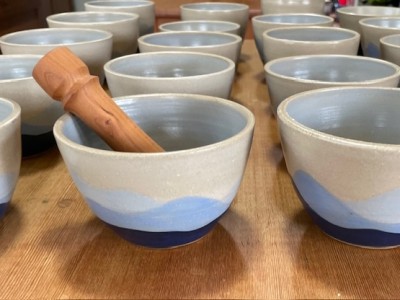April 15, 2024
 According to Professor Juliane Nguyen, Ph.D., although cardiovascular disease is still the number one cause of death world-wide, the way heart attacks are treated hasn’t changed much in the last 20 years. With a $2.7 million grant from the National Institutes of Health (NIH) Research Project Grant Program (R01), her lab will take the next steps toward developing a new therapy that could impact the way all heart attack patients are treated.
According to Professor Juliane Nguyen, Ph.D., although cardiovascular disease is still the number one cause of death world-wide, the way heart attacks are treated hasn’t changed much in the last 20 years. With a $2.7 million grant from the National Institutes of Health (NIH) Research Project Grant Program (R01), her lab will take the next steps toward developing a new therapy that could impact the way all heart attack patients are treated.
“Effective delivery of therapeutics to the heart is quite challenging. When we inject therapeutics, they typically disperse throughout the entire body. However, the heart is small and receives only 3% of the blood volume. As a result, most of the therapeutic agents end up reaching other organs, such as the liver.” said Nguyen, vice chair of the Division of Pharmacoengineering and Molecular Pharmaceutics (DPMP).
Nguyen’s lab has developed a new therapeutic called Zippersome, which employs a layer-by-layer approach to ensure the heart receives comprehensive treatment. The therapeutic is designed for administration via an intravenous line, eliminating the need for open heart surgery. This approach involves getting one dose successfully to the heart so that it can effectively capture subsequent doses of the therapeutic—the zipper proteins allow for the therapeutic to attach to one another, like Velcro.
“We are excited about this because we have demonstrated with our technology that we can deliver a significant amount of the therapeutic to the heart. Additionally, in pre-clinical studies conducted in mice, we successfully reduced the injury that occurs to the heart after a heart attack, almost restoring cardiac function to healthy levels,” she said.
The treatment would be inserted via infusion, which is why surgery would not be required. The results have also shown less scar tissue, a decrease in inflammation and a restoration of blood flow. Nguyen shared that this is great news for those who may live in rural areas and don’t have immediate access to a cardiac surgeon.
“This has the potential to provide faster and better healing for patients experiencing a heart attack and could help prevent heart failure down the road,” she said.
Latest News

Dean Angela Kashuba receives Carolina Alumni Faculty Service Award



